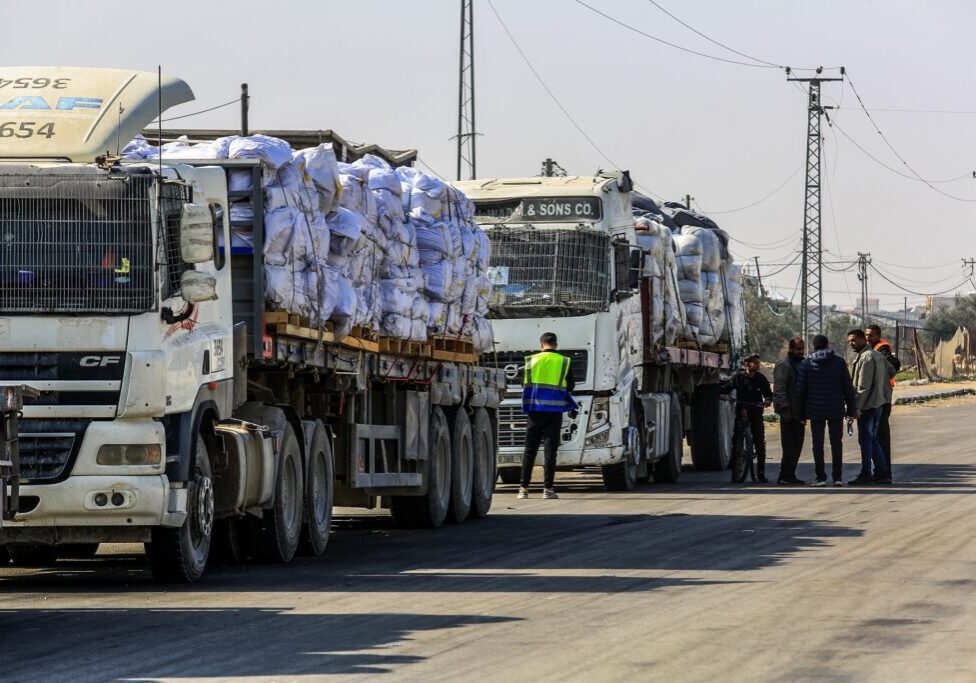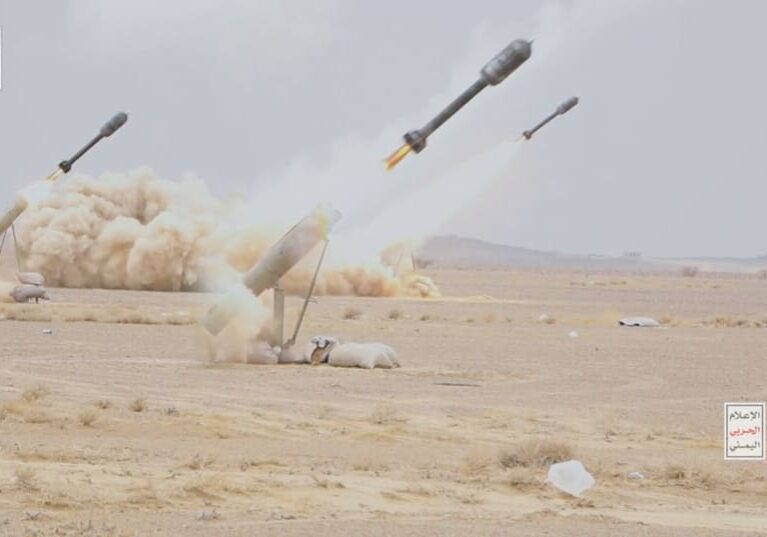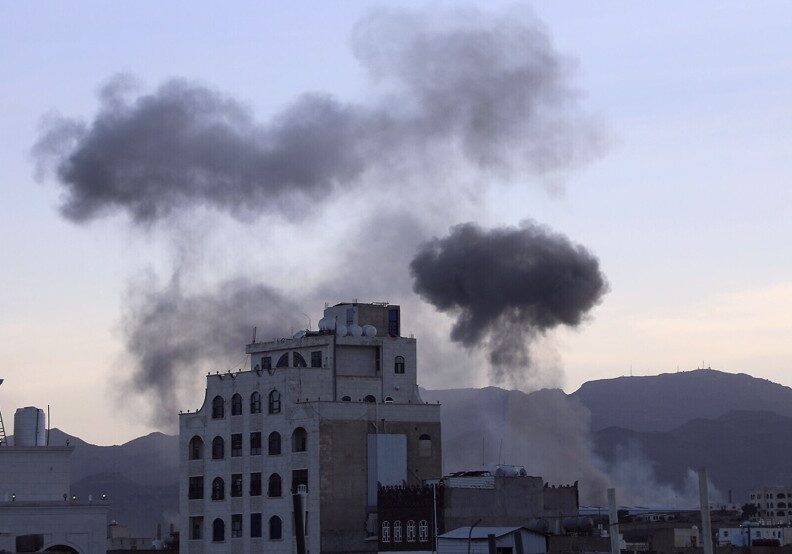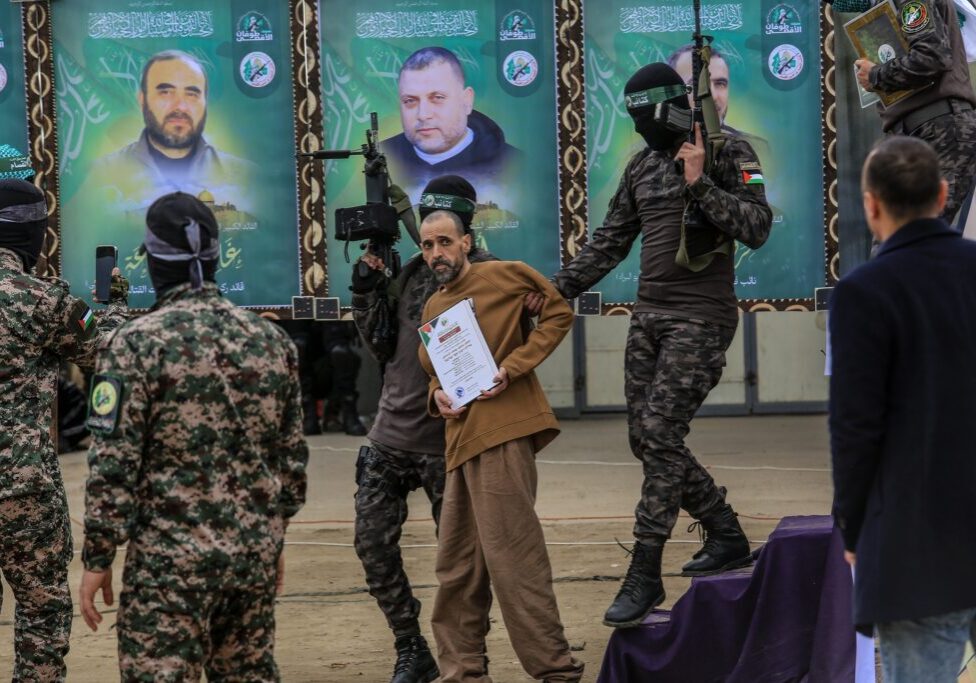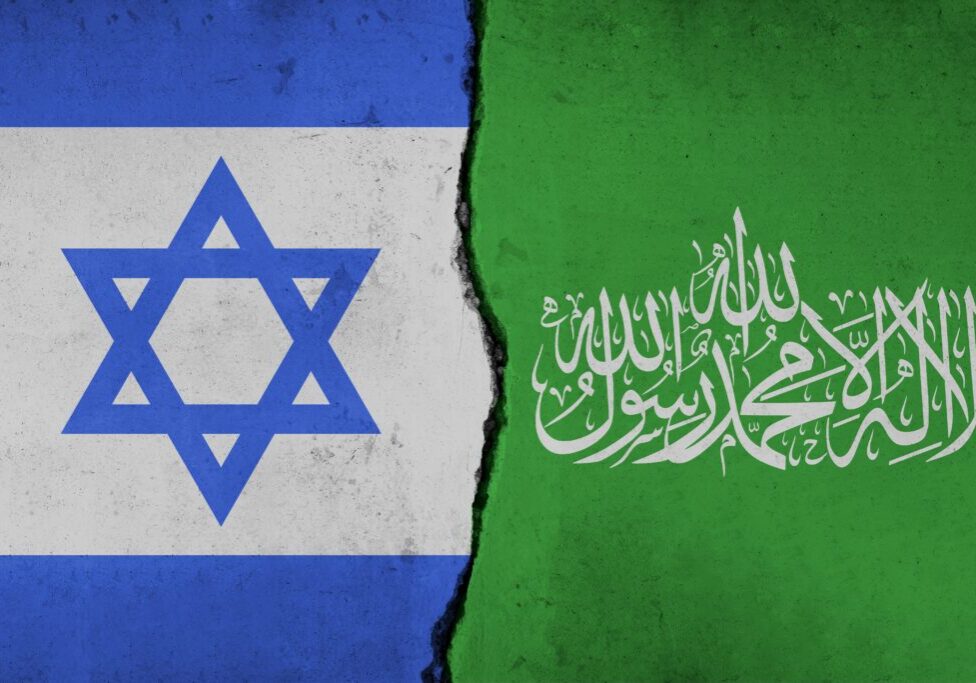Australia/Israel Review
Essay: Winging It
Aug 27, 2013 | Jeni Willenzik
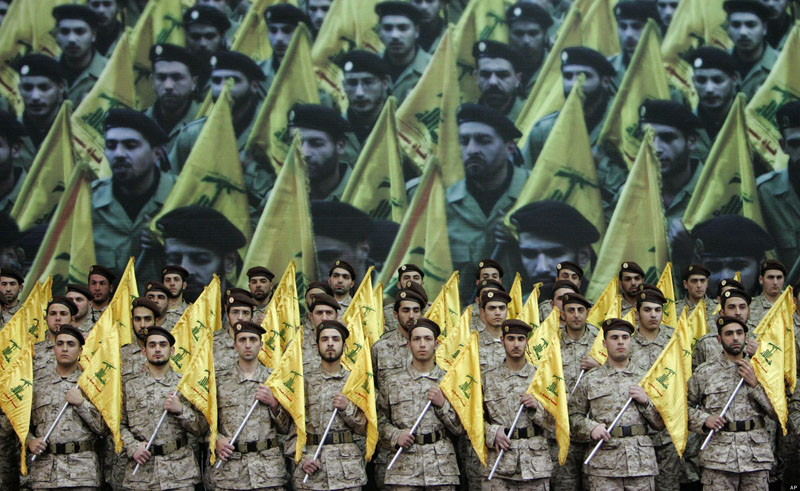
Why partial bans don’t solve the Hezbollah problem
During a meeting of the European Union (EU) Foreign Affairs Council on July 22, a consensus was reached among the 28 foreign ministers representing each of the EU’s member states. After months of discussion, it was agreed to ban Hezbollah’s military wing. In doing so they joined Australia, Canada, the United States and Israel, among other states, in condemning Hezbollah as a terrorist organisation.
The move is likely considered a significant political achievement by Washington and Jerusalem, both of whom have long urged the EU to act to curtail Hezbollah’s history of fundraising, garnering support and perpetrating violence in Europe.
However, like Australia, Europe chose only to implement a partial ban on Hezbollah, despite claims made by both Hezbollah’s top leadership and counter-terrorism experts that no distinct factions exist within the greater unified organisation. Since 2003, Australia has banned Hezbollah’s External Security Organisation, which according to the Australian Government is a “discrete branch of its military wing specifically responsible for planning and implementing terrorist attacks outside of Lebanon.”
At their July meeting, the EU chose to ban Hezbollah’s entire military wing. It remains legal for Hezbollah members to organise in Australia and in the majority of the EU, unlike in the United States, Canada and the Netherlands. However, Australian law has barred fundraising for any aspect of Hezbollah since 2001, under the provisions of the Charter of the United Nations Act 1945 and the Charter of the United Nations Regulations 2002.
By criminalising Hezbollah’s military efforts, Australia and Europe have each demonstrated a commitment to attempt to cut off the funding and activities supporting Hezbollah’s terrorist efforts, consistent with UN obligations. But although this decision will likely have negative implications for Hezbollah, a full ban would probably be much more effective in preventing acts of terrorism and curtailing Hezbollah activities that support terrorism, including fundraising and recruitment. This article will examine the claims associated with the partial ban – arguing that they appear to be inadequate, both empirically and in policy terms.
Hezbollah and its “wings”
Hezbollah was formed in 1982 as a supposed “resistance movement” to remove Israel’s presence from Lebanon as, according to its 1985 manifesto, “a prelude to its final obliteration.” Founded with support from the Iranian Revolutionary Guard, who continue to play a large role in its military activities today, Hezbollah serves as both a radical Shi’ite Islamist political party within the Lebanese Government, and as a militant group with a well-trained, well-equipped militia that is widely known to have repeatedly perpetrated numerous acts of terrorism. Hezbollah also garners support by providing services for Lebanese Shi’ites, including social and health programs.
Just in the past couple of years, Hezbollah has been caught training operatives in Africa, bombing buses in Europe, and fighting alongside Bashar al-Assad in Syria – sending thousands of its own troops to escalate and aggravate tensions in a civil war that has already led to the death of more than 100,000 people. There are reasonable concerns that the Assad regime could transfer chemical weapons or other especially dangerous arms to Hezbollah.
Hezbollah obtains funding in various ways, including, according to numerous reports, illicitly through drug trades and money laundering, and through the guise of its cultural projects and social services – including orphanages, hospitals, and schools. Domestically in Lebanon, Hezbollah’s militia is considered more powerful than Lebanon’s official army. In May 2008, when the Lebanese Government moved to dismantle Hezbollah’s illegal telecommunications network in Beirut, Hezbollah called the decision a “declaration of open war” and had its troops occupy the city – killing at least 11 Lebanese citizens from rival groups in the process – until the Government withdrew its decision.
Most significantly, Hezbollah has allegedly committed extreme acts of violence and terror both to achieve political objectives – as the 1983 suicide truck bombing that killed 241 US Marine peacekeepers – and sometimes, it seems, purely to demonstrate anti-Jewish animosity – such as in the 1994 bombing of the AMIA Jewish community centre in Buenos Aires that killed 85. Last year in Thailand, a Lebanese man with connections to Hezbollah was found with large stockpiles of chemicals used to make bombs, which American intelligence analysts claim was most likely intended to be used in future attacks against Israeli tourists there. One of two major suspects in the bus bombing in Burgas, Bulgaria, that killed six people in July 2012 was an Australian citizen named Meliad Farah, who was reportedly recruited by Hezbollah to take charge of a cell in Australia.
Hezbollah operates through five administrative bodies – one of which is responsible for military action and the planning, coordination, and execution of terrorist attacks, and one of which is responsible for domestic politics. The actions of each of these five bodies are overseen and coordinated by the leadership of a council led by Hassan Nasrallah, who operates directly under Iran’s Supreme Leader. This leadership council makes decisions on Hezbollah’s political and military engagements, and considers the entire group to be one united entity.
On May 24, 2013, Hezbollah’s second-in-command Naim Qassem stated:
We do not have a military arm and another that is political. These Europeans are making themselves ridiculous by imitating Britain, which drew the distinction [of] military arm and political arm; because they need relations with us, and they are manipulating their own peoples [by saying] that they are conducting a dialogue with politicians rather than with members of [our] military… For us, every child is both a military man and politician.
Many of Hezbollah’s political actors have been involved in its military activities and vice versa, and many of its ‘social’ tasks – for example, a German orphanage that raises money for the organisation as a whole – are an essential part of the funding it needs to support its more violent initiatives.
The partial ban
Because Hezbollah has, in recent years, been an elected part of the Lebanese Government, many countries have reportedly been hesitant to blacklist it. In fact, the EU took months of persuasion, meetings and debate just to ban its military wing. Currently, Australia and the EU believe that outlawing this military wing – explicitly responsible for carrying out its terrorist attacks – is justifiable and warrented as a response to them.
According to Dutch Foreign Minister Frans Timmermans, the EU’s recent decision will freeze the military wing’s assets, hinder its ability to fundraise, and limit its capability to act. Even Hassan Nasrallah, Hezbollah’s Secretary-General, has admitted the significant impact of a full EU ban, saying it “would dry up sources of finance… end moral, political and material support, [and] stifle voices.”
Optimistically, a partial banning of Hezbollah might help lead to the organisation’s eventual demise – especially if fundraising is severely affected. However, because the parameters and technicalities of the decision are unclear, because Hezbollah itself does not recognise significant differences between its wings, and because many of Hezbollah’s civil and cultural projects raise money for the organisation as a whole, deciding what will and will not be banned will involve many grey areas.
How Europe chooses to interpret the partial ban will be crucial in determining the ban’s efficacy – but it must be noted that the partial ban will most likely not cut off Hezbollah’s European funding completely. The ban will allow Europe to further investigate Hezbollah’s activities on the continent – and Israel reportedly now plans to share relevant intelligence material with EU law enforcement officials – but the depth of what these investigations will uncover will ultimately be based upon the depth of commitment by individual European governments. Furthermore, these factors may influence Hezbollah to re-focus its investments and fundraising efforts – either away from Europe, or toward those parts of Europe that do not choose to aggressively enforce this decision.
Meanwhile, in Australia, although it is ostensibly illegal to fundraise for Hezbollah, some reports suggest that Hezbollah operates sleeper cells here, secretly. Further, al-Manar, Hezbollah’s TV station, broadcasts in Australia via Indosat, an Indonesian telecommunications provider, despite findings by Australian regulators that the TV station violate broadcasting regulations by glorifying terrorists and promoting antisemitism.
Despite all of its limits and ambiguities, the new EU partial ban surely does help undermine Hezbollah, offering validation and acknowledgement to the victims of the Burgas, Bulgaria bus bombing and other acts of terrorism Hezbollah has committed around the globe. It recognises Hezbollah’s true nature as a major perpetrator of international terrorism and provides the potential for some legal tools to make fundraising and other activities more difficult, including a likely ban on travel within Europe for most known Hezbollah members. Most importantly, it shows that Europe is willing to take action in response to terrorism, despite any potential political complications, thus providing some deterrence against other international terror organisations seeking to carry out attacks in Europe.
Arguments against a full ban
Those advocating a partial ban – both in the EU and in Australia – have advanced a variety of reasons for exempting Hezbollah from a full ban that would otherwise appear to be legally and logically justified.
The following arguments have been used against a full ban:
1. Desire to maintain political relations with Lebanon
Some have opposed a full ban based on their belief that it would make it illegal for diplomats to meet with Hezbollah’s political leaders, which could cause relations with Lebanon to decline.
First, this is a factually incorrect assertion. According to Matthew Levitt, Director of the Stein Program on Counterterrorism and Intelligence at The Washington Institute, the EU’s procedure for blacklisting terrorist groups only requires that a group’s assets be frozen. It doesn’t include any provisions about prohibiting contact with that group’s members. The United States prohibits communication with Hezbollah members, and the EU is prohibited from contact with Hamas due to Quartet restrictions, but this would not necessarily need to be a condition of an EU ban on Hezbollah.
Banning Hezbollah isn’t a manoeuvre designed to bully Lebanon or damage ties, it is a designation that effectively responds to atrocious terrorist crimes Hezbollah has committed for the purpose of prevention in the future – and required as an obligation under UN Security Council resolutions. Similarly, it shows the Lebanese people that Europe, Australia and North America believe Hezbollah’s techniques and ideology are not acceptable, in the hope they may support other parties and groups which do not engage in terrorism to escalate violence or espouse racial hatred. If the EU – or Australia for that matter – wishes to continue dialogue with all political parties in Lebanon, it is still able to do so without sacrificing the opportunity to effectively put pressure on the activities of a major group responsible for international terrorism.
2. Fear of the destabilisation of Lebanon as the result of a ban
Critics of a full ban have also cited a fear of a resulting destabilisation in Lebanon during a particularly unstable period in the region.
However, Hezbollah’s foreign policy has become increasingly aggressive and global over the past three decades, and there is therefore no reason to expect it can or will be a stablising force.
Rather than maintaining Middle East stability, Hezbollah is in fact escalating tensions in the Syrian conflict by assisting Syrian President Assad in contributing to a brutal civil conflict.
Meanwhile, in Lebanon, if the Lebanese Army were stronger than Hezbollah’s militia, it would not need Hezbollah’s military presence and Lebanon’s government could better control decisions of war, peace, and domestic services for all Lebanon’s citizen, thus helping ameliorate the country’s ethnic divides. But since Hezbollah’s militia is stronger and better funded than the Lebanese Army, the national military is unable to stabilise the security situation nor the national government effectively govern the country – with its history of ethnic conflict and extreme instability.
For all its rhetoric about helping the Lebanese people, Hezbollah acts more in accordance with the interests of Iran and Syria than with those of the population it governs, or indeed the objective needs of Lebanon as a state. The extent to which the organisation is directed from Iran was confirmed by Sheikh Sobhi Tufaili, Hezbollah’s former Secretary-General, who said recently: “I know that the decision to push Hezbollah into the Syrian war was made in Iran. Political decisions are always 100% Iranian although Iran does not get involved in all the little details.”
In a statement made last month, United States Deputy Secretary of State William Burns made the point:
“That intervention [Hezbollah in Syria] may be in Hezbollah’s interest, it may be in the interests of Iran, it may be in the interest of Bashar Assad, but it is not in the interests of Lebanon and the Lebanese people… Despite its membership in the Lebanese Government, Hezbollah has decided to put its own interests and those of its foreign backers above those of the Lebanese people.”
In 2005, a UN tribunal charged Hezbollah members with assassinating Lebanon’s former Prime Minister Rafiq Hariri, who had opposed the Syrian occupation of Lebanon. In 2006, Hezbollah actions sparked a war with Israel that was damaging to the populations of both countries. Evidence suggests that a weakened Hezbollah would lead to a more stable Lebanon better able to meet the needs of all of its citizens.
3. Fear of retaliation against peacekeeping forces and through terror
Justifiably, many nations fear that Hezbollah would retaliate against a full ban by attacking peacekeeping forces in the region or by choosing to plan additional terrorist attacks against the citizens of the nations that blacklisted it. Reportedly, this was a major factor that deterred the EU from coming to a consensus on a partial ban sooner. The EU consists of many smaller nations whose foreign policy views are often congruent to their size, and Hezbollah is violent. This reasoning deems it logical to reject a long-term solution for fear of its short-term implications.
Vladimir Shopov, a political scientist at the New Bulgarian University in Sofia, explained the difficulty of his country’s decision to openly and strongly attribute the bombing in Burgas to Hezbollah: “For small Bulgaria to come out and openly name Hezbollah in such a way is as good as entering a minefield… There would have to be absolute certainty almost.”
Yet, just as a bully will continue to harass his victims if he knows no one is willing to stand up to him, and a criminal will continue to break the law if she knows there will be no consequences, not calling out Hezbollah for what it is invites more attacks that anticipate no negative repercussions. If fear of retaliation were an acceptable excuse, there would be no motivation to label any group as a terrorist group.
4. Belief that evidence of Hezbollah’s involvement in terrorist attacks is inconclusive
Some countries and analysts have argued there is not sufficiently conclusive evidence that Hezbollah is responsible for the bus bombing in Bulgaria; however, the evidence appears overwhelming.
Bulgaria has made several statements over the past year pointing to clear evidence of Hezbollah’s involvement in the Burgas bombing. Tsvetan Tsevtnov, Bulgarian Interior Minister, said of the bombers, “We have established that the two were members of the military wing of Hezbollah.” Investigators also found that a Hezbollah operative owned the printer used to produce the counterfeit identification that the bombers used. On investigating the attack, Rob Wainwright, the director of Europol, the EU’s national police service, reportedly cited “very strong, obvious links to Lebanon,” including sources of intelligence, forensic evidence, patterns similar to other Hezbollah attacks, and findings that the suspects were Lebanese members of Hezbollah’s military wing.
The former head of Bulgaria’s National Intelligence Service, Lt. Gen Kircho Kirov, said he was not surprised by the attack, saying, “In the last five or six years, we have had very concrete information that organisations like Hezbollah… were ready to prepare attacks,” and specifically, “very concrete information about attacks against Israeli tourists.”
In the EU, the criteria deemed sufficient to label a group or entity as a terrorist organisation includes participating in activities “with the aim of seriously intimidating a population… including by supplying information or material resources… with knowledge of the fact that such participation will contribute to the criminal activities of the group.”
Some nations opposed to banning Hezbollah claimed they weren’t sure that the link connecting Hezbollah to the Burgas bus bombing was yet conclusive – arguing, for instance, that no one had yet been convicted over the attack. However, if the dozens of other attacks killing hundreds across the globe that Hezbollah has been linked to is not enough, the conviction this year in Cyprus of a Hezbollah member plotting to attack Israeli tourist targets there as well should be enough evidence to outlaw the organisation.
The case for a full ban
As a result of UN Security Council Resolutions 1373, 1368 and 1377, all states must prevent, suppress, and criminalise the financing of terror and attempted terror, ensuring that any person or entity that has committed or attempted to commit any terrorist attack should be prohibited from all economic resources and brought to justice. These provisions apply to terrorism both inside and outside of each state’s own borders, encouraging cooperation and multilateral arrangements.
Despite any and all potential political implications considered, choosing not to outlaw Hezbollah, a unified entity responsible for many terrorist attacks taking hundreds of lives, stands in contravention of the obligations created by these resolutions. Moving forward, advocates for a full ban believe in condemning and banning the entire organisation for a simple reason: As an entity, Hezbollah has demonstrated a commitment to using terrorism around the world to achieve its global political objectives.
Unless it is crippled, there is nothing stopping a powerful organisation such as Hezbollah from continuing to use terrorism in order to support its goals. Regardless of its other activities, a political party that performs acts of terrorism as a key part of its activities must be treated as a terrorist entity.
In order to ensure Hezbollah does not continue to escalate global terror and violence, several steps could be taken. First, to stop Hezbollah from raising funds, recruiting members, and sending operatives around the globe, its assets would need to be seized and its global fundraising efforts stopped. One of the most difficult components of a partial ban is determining where the definitional line should be drawn between military and social, political, or cultural activity. For the ban to be fully successful, it would need be implemented in the most comprehensive way, making every effort to cut off all sources of funding that facilitate Hezbollah’s activities.
Under a partial ban, even if Hezbollah were perfectly transparent about exactly how it gets its money and where that money goes – which it emphatically is not – and even if any money earned in Europe and Australia were to be used exclusively for political or social activities, that would simply free up other money – gained from foreign actors such as Iran or illicit activities such as illegal drug trafficking – to be used for terrorism.
Mark Dubowitz, Executive Director of the Foundation for Defence of Democracies, recently urged: “The US government, working with Congress, now needs to use its designation and secondary sanctions authority to target all of Hezbollah’s political, commercial and charitable entities in Europe and elsewhere which masquerade as legitimate players. By designating and identifying these entities, the US can lay the predicate for an expanded set of measures to encourage Europe to target Hezbollah in its entirety.”
The momentum against Hezbollah is growing as Hezbollah’s motives and actions are becoming more clearly recognised by a wider audience. For the protection of smaller nations such as Bulgaria, larger countries must work together if they hope to stop its terrorist activities – as required by binding UN resolutions, as well as a basic sense of justice. If nations are concerned about retaliation, their fears should be addressed via maximum international cooperation against Hezbollah under a complete ban.
With that said, countries that are convinced a full ban is in the world’s best interest shouldn’t wait for complete international unity in order to take action. Another EU decision is probably unlikely in the short-term, given the need for consensus across 28 nations, but until then, countries such as Australia, the UK, Germany and France – who have largely supported a partial ban – could come to their own consensus about a full ban which would do considerably more to limit Hezbollah fundraising, recruiting and training operatives.
Hezbollah is responsible for committing dangerous acts of terrorism, fuelling violence, and contributing to the destabilisation of an already unstable region. The recent EU decision demonstrates global momentum against Hezbollah – proof that countries around the world are more serious than ever about cooperation against actors characterised by terrorism and crime. However, evidence shows that a partial ban will not stop an organisation that operates as one entity. Hezbollah will only be forced to end its terror activities under maximum, multilateral pressure.
Tags: Hezbollah, International Security, Lebanon

